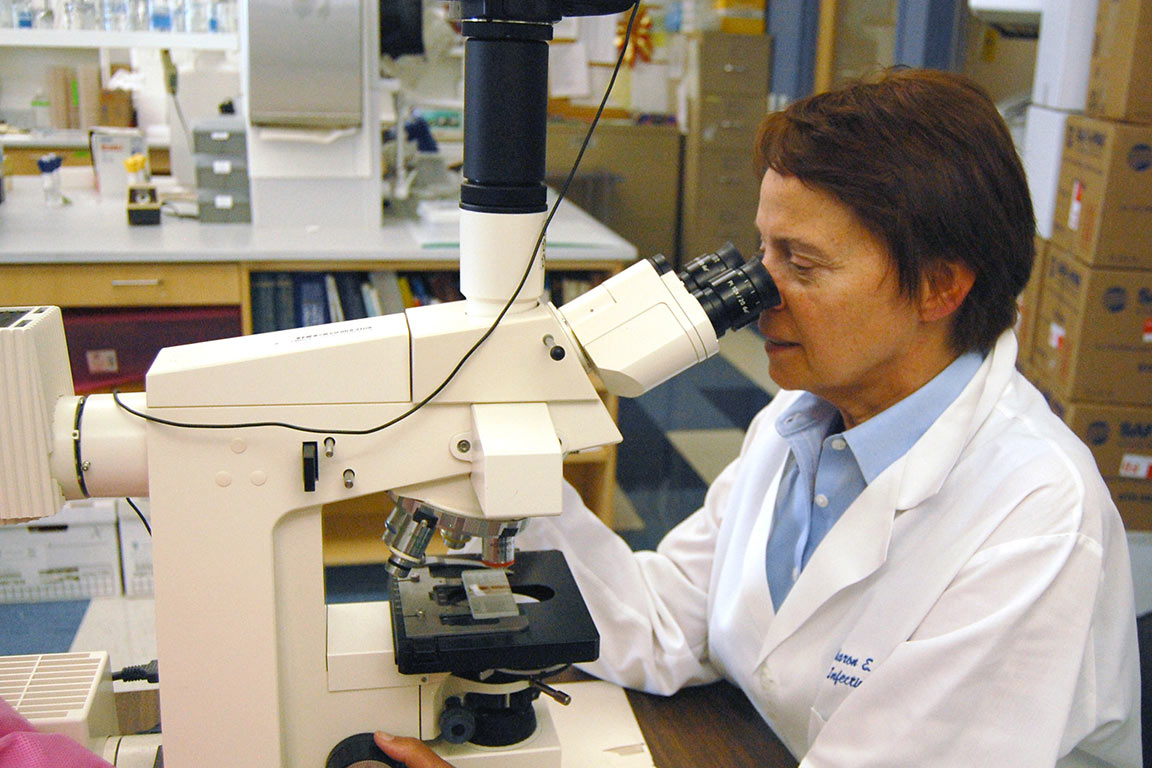Saint Louis University Launches Phase 3 COVID-19 Vaccine Trial
Carrie Bebermeyer
Public Relations Director
carrie.bebermeyer@slu.edu
314-977-8015
Reserved for members of the media.
Researchers at SLU’s Center for Vaccine Development Will Recruit Participants for Moderna Vaccine Study
As the COVID-19 pandemic continues to take a toll on millions worldwide, researchers at Saint Louis University’s Center for Vaccine Development will begin enrolling participants in a phase 3 clinical trial to study the effectiveness, safety and immune response generated by a vaccine co-developed by scientists at Moderna and the National Institute of Allergy and Infectious Diseases (NIAID) Vaccine Research Center.
SLU’s Center for Vaccine Development will enroll participants in the vaccine study as part of a larger Moderna trial that will enroll 30,000 participants across the country.
With no existing vaccine against SARS-CoV-2, the virus that causes COVID-19 disease, there is an urgent public health need to develop a vaccine to prevent the spread of this disease.
“A safe and effective vaccine that will protect against COVID-19 is our best hope for ending the current pandemic,” said Sharon Frey, M.D., clinical director of SLU’s Center for Vaccine Development and principal investigator of the Moderna trial at SLU. “This is why it is vital that we conduct careful scientific studies to learn if vaccines like this one can prevent illness and stop future outbreaks, especially in our most vulnerable and at-risk populations."
The Moderna vaccine trial (COVE Study)
Researchers will evaluate the vaccine in adults 18 years and older who have no known history of infection with SARS-CoV-2.
Those in the study will be randomly assigned to receive the mRNA-1273 vaccine, co-developed by scientists at Moderna and the NIAID Vaccine Research Center, or a placebo, which will be given in two injections, 28 days apart. Participants cannot contract COVID-19 from the vaccine and will not be deliberately exposed to the SARS-CoV-2 virus.
Study participants will provide nasal and blood samples and may have up to seven scheduled clinic visits over the course of two years as researchers monitor their immune response. Participants will be compensated for their time.
To learn more about participating in the COVID-19 vaccine trial at Saint Louis University, please visit vaccine.slu.edu and complete the questionnaire or call 314-977-6333 or 1-866-410-6333.
SLU is enrolling patients in the Moderna clinical trial as a part of the COVID-19 Prevention Network, a newly organized network formed by the National Institute of Allergy and Infectious Diseases to test vaccines and monoclonal antibodies against the COVID-19 pandemic.
The project is funded under cooperative agreement number UM1 AI148685.
About the Saint Louis University Center for Vaccine Development
Saint Louis University has been on the front lines in the fight against pandemics and global health crises for more than three decades and first received federal funding for vaccine research in 1989.
Led by Daniel Hoft, M.D., Ph.D., SLU’s Center for Vaccine Development is one of only 10 institutions selected by the National Institutes of Health as a Vaccine and Treatment Evaluation Unit (VTEU).
As a VTEU, the Center helps develop and evaluate vaccines that will protect people from infectious diseases and emerging threats. It conducts Phase 1 through 4 vaccine and treatment trials, including clinical studies in collaboration with industry partners. Hoft serves as the VTEU’s principal investigator.
About the Saint Louis University School of Medicine
Established in 1836, Saint Louis University School of Medicine has the distinction of awarding the first medical degree west of the Mississippi River. The school educates physicians and biomedical scientists, conducts medical research, and provides health care on a local, national and international level. Research at the school seeks new cures and treatments in five key areas: infectious disease, liver disease, cancer, heart/lung disease, and aging and brain disorders.


















